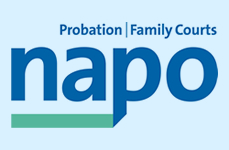Debating amendments to the Counter-Terrorism and Sentencing Bill on Tuesday, Shadow Minister and Co-Chair of the Justice Unions Parliamentary Group, Lord Ponsonby raised both Napo's and the POA's concerns that Probation caseloads are far too high, at around 70 prisoners per officer, and that removing the hope of eaarly release puts prison staff at risk.
Lord Ponsonby of Shulbrede: I got an interesting briefing on this debate from the probation officers’ trade union, Napo. It made a couple of points, which I will repeat. It said that in the offender management and custody model, it indicates that a high-risk offender should get one hour of individual contact per month with a probation officer. A probation office’s staff have a minimum of 70 clients, so it is impossible for them to meet that requirement. The central point that Napo made in the briefing was that, when one reviews approaches and puts down procedures, the reviews need to result in practical change on the ground, otherwise they are destined to be repeated without effective change.
[...]
I shall make a couple of other brief points which are different from those which have been made by other noble Lords. They arise from briefings that I have had from the trade unions. The Prison Officers’ Association believes that removing hope from prisoners puts its staff at risk. It is a point that the association makes repeatedly and is an important one to feed into this debate. The second point has been made by the National Association of Probation Officers—that is that the workload of probation staff working on the ground in prisons is so high that they are not managing to deliver to their required standards. They are being allocated around 70 prisoners each. I understand that the Minister has talked about these various programmes, and I know that we are talking about a very extreme group of prisoners. Nevertheless there is the practical working position of prison officers, probation staff and others in prisons to consider in trying to make these institutions work and to reduce recidivism when prisoners are released.
